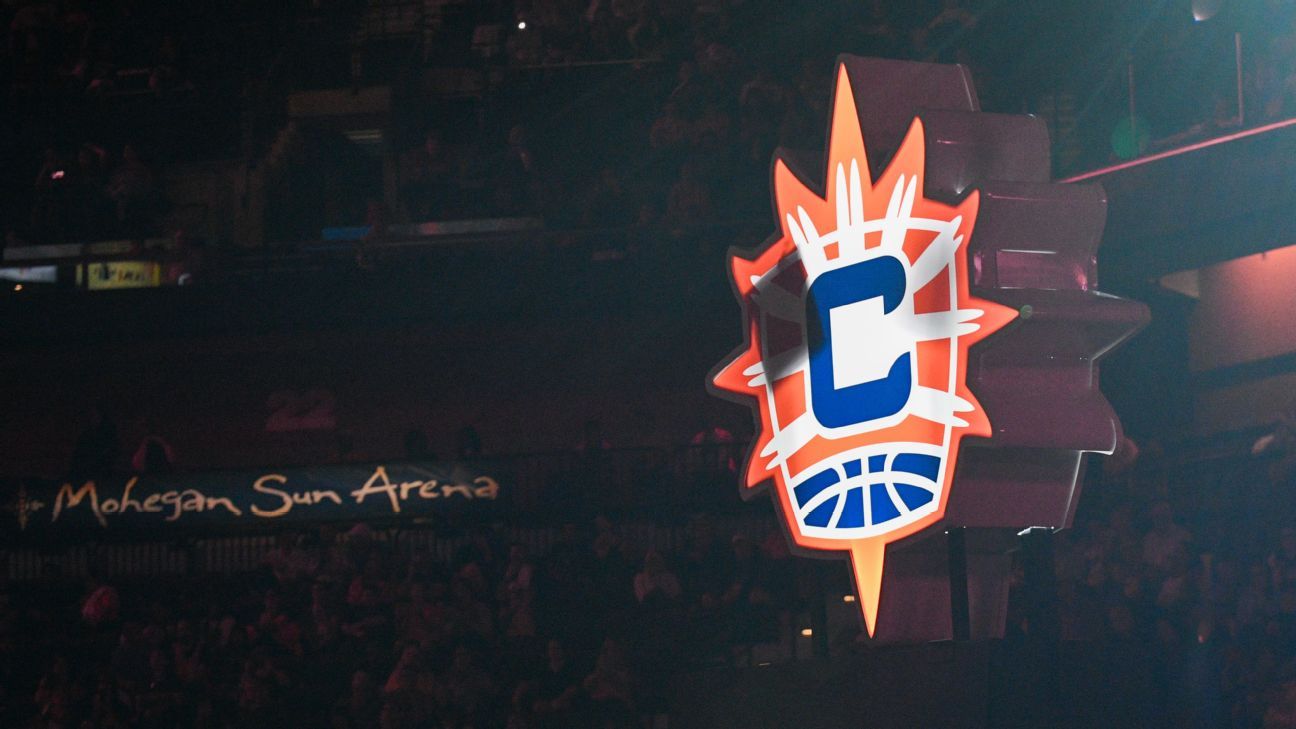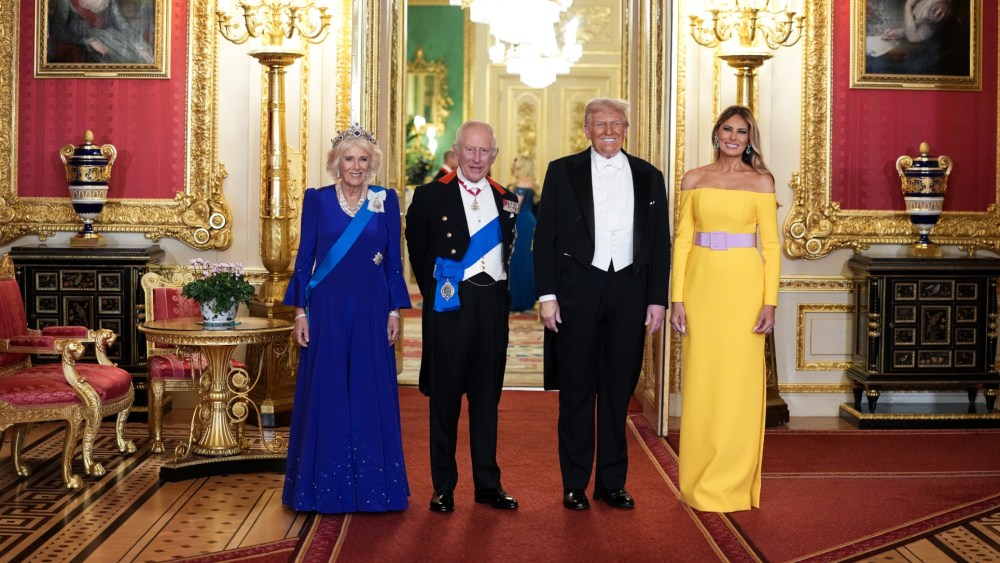
In 2002, the WNBA was struggling, desperate for almost anyone or any place willing to have it. Two franchises folded that offseason — Miami and Portland. Nobody wanted them. Another, Utah, moved to San Antonio (and later Las Vegas).
The failing Orlando Miracle were facing disbandment, as well, until an unlikely ownership group, the Mohegan Tribal Nation in Connecticut, stepped up with a unique plan. The tribe would bring the WNBA to a 9,000-seat arena attached to its casino in the woods of New England.
Mohegan Sun would be the new home of the Connecticut Sun, a team named after a casino in a gamble on the down-on-its-luck WNBA. Maybe, everyone hoped, some of the passion for the nearby UConn women’s team would carry over.
Over the next two-plus decades the plan worked, delivering stability to an unstable league (four additional franchises folded by 2009). Despite being in out-of-the-way Uncasville, Connecticut, the team consistently has drawn crowds, ranking fifth in average attendance as recently as 2022.
Good partners. Great fans.
And now, with big money flooding the sport, the WNBA is paying them back by … doing everything it can to move the Sun as far away as possible.
The Mohegan tribe is looking to cash in on its original purchase. That’s both the tribe’s right and some smart business. The team it initially bought for $10 million has attracted two, full-ask offers of $325 million, a record amount for the WNBA.
One bid, from a group led by former Milwaukee Bucks minority owner Marc Lasry, would keep the franchise in Connecticut, with games shifting to Hartford and its 16,000-seat downtown arena undergoing a $145 million modernization.
The other, from a group led by former Boston Celtics minority owner Steve Pagliuca, would relocate the team to Boston, 105 miles up the road but at least within the region.
A third bid, with yet-to-be disclosed financial terms, has been made by a group that includes the state of Connecticut itself, and would have the team play in both Hartford and Uncasville.
The WNBA, which must approve a sale, has indicated that neither the Pagliuca nor the Lasry deal is acceptable, according to reporting by ESPN’s Alexa Philippou.
Instead, the league has offered to buy the franchise for $250 million before awarding it to one of the cities that has already gone through the WNBA’s expansion application process — likely Houston.
That would mean the Mohegan tribe would get substantially less return on its investment while the fans would get left to small-market history, the way the NBA once had teams in Fort Wayne and Syracuse.
“The WNBA is trying to strong-arm the [Mohegan tribe] to take a lesser offer,” Senator Richard Blumenthal (D-CT) told ESPN on Tuesday. “They are, in effect, putting their thumb on the scale to discourage them from doing what they want, which is presumably keep the team in Connecticut.”
Blumenthal sent a letter to the WNBA last week warning the league to stay out of negotiations between the tribe and prospective buyers, threatening to launch an antitrust investigation if the league “takes a step to hinder or constrain Connecticut’s negotiations.”
The WNBA did not respond to multiple requests for comment. NBA Commissioner Adam Silver said Wednesday that the league will be involved in any relocation decision.
“We went to the Mohegan Sun and said if you want to sell your team, that’s fine if you have a buyer to play at the Mohegan Sun,” Silver said at the Front Office Sports Tuned In summit. “Once you’re talking about moving it to another city, that’s a league matter. That’s not an individual team matter. That’s where it stands right now.
“Boston did not apply … for an expansion team and frankly neither did Hartford,” he said.
Silver is absolutely correct about the league needing to approve any relocation. However, that argument is nonsensical if it is used to block the bids that keep the team in Connecticut. Moving 43 miles from Uncasville to Hartford, the major population center of the state, is far closer and more convenient to the majority of Sun fans.
“I can’t say I understand why they are so in favor of the team moving,” Blumenthal said.
It’s about money, seemingly. Mainly new money coming to an old league that is in the midst of a massive transformation.
First a bunch of billionaires, many of whom already own NBA teams and NBA arenas, saw Caitlin Clark hit some logo 3s (or more specifically, saw how many people tuned in to see Caitlin Clark hit some logo 3s). Then they realized there might be a way, if properly run this time, to profit off women’s basketball as a whole.
Just like that, the league is booming.
Consider that in October 2023, the owners of the Golden State Warriors paid a $50 million expansion fee for the Valkyries to begin play this season. Just 20 months later, the expansion fee soared to $250 million for new teams in Cleveland, Detroit and Philadelphia, each going to a current NBA owner.
The WNBA is like an Old West boomtown, which is why figuring out what to do with Connecticut can get clumsy, if not outright cruel.
The league clearly wants no part of Hartford or Uncasville, otherwise it would just approve either the Lasry-led or Connecticut bid. It also clearly wants no part of the current Boston offer.
If the league is going to go to Boston, it would likely prefer the Celtics’ current owners, if not an additional partnership with the separate owners of TD Garden (and the NHL Boston Bruins).
A WNBA team that runs cohesively with an NBA team, especially one that owns its arena, can access existing ticket holders, corporate sponsors, media, staffing and infrastructure, as well as assure optimal stadium dates to increase the likelihood of success and profitability.
Considering the trend lines, the WNBA has to be confident that by the time Boston sorts it all out, the league could command $400 or $500 million for an expansion team. Time is on the league’s side.
That leaves the WNBA offering itself as the only option for the Mohegan tribe, the league’s interest being to buy the team and flip it — based on all speculation around the NBA and WNBA — to Tillman Fertitta, who owns the Houston Rockets and the Toyota Center.
Houston was among the finalists that missed out on the latest round of expansion.
Back in Connecticut, in the WNBA’s wake, are concerned politicians and nervous, loyal fans.
“Connecticut is a basketball powerhouse of a state with a tremendous fan base,” Blumenthal said.
Once upon a time, and for a long time after, Connecticut was a downcast league’s only option, a safe port in a lengthy storm.
That was then. This is the gold rush.
#Wetzel #WNBAs #growth #hurt #Connecticut #Sun #fans #sale






